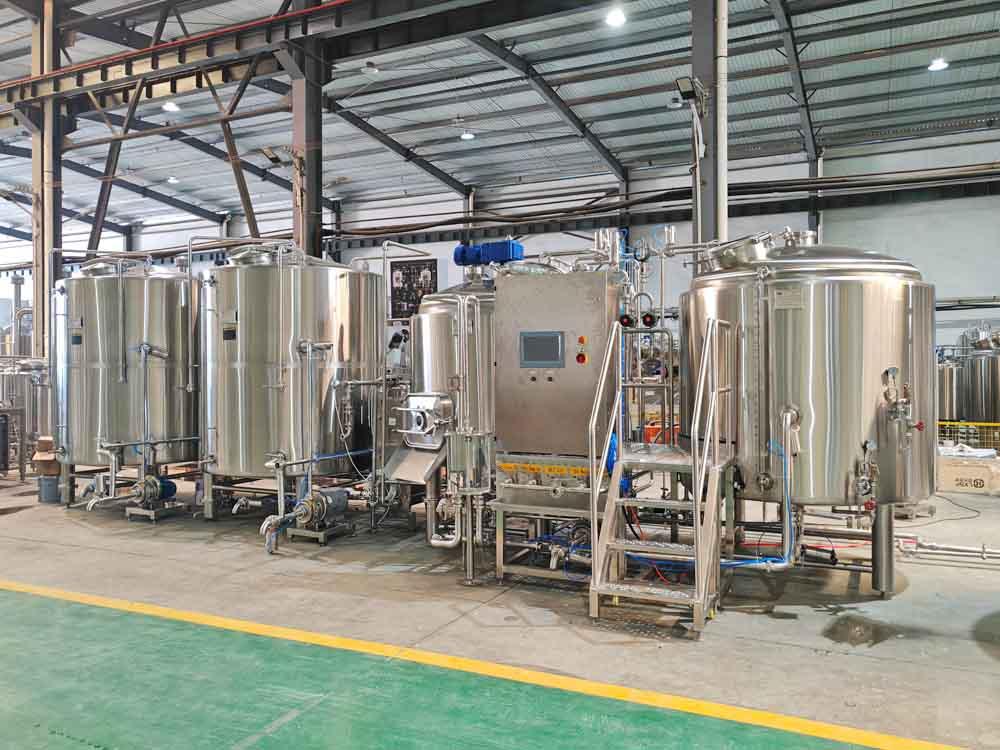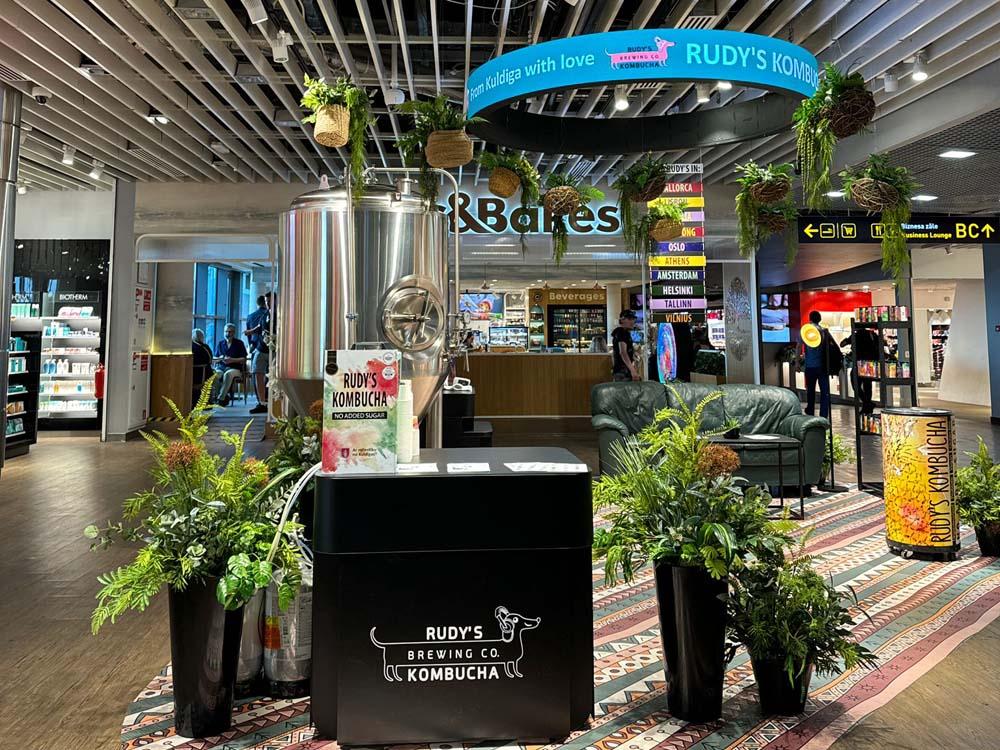How to Start a Microbrewery in Australia
- Feb 11, 2022
- 198
- tiantai
If you have a passion for beer and you’ve thought about starting your own business, a microbrewery might just be your next great venture. Microbreweries have in fact become immensely popular of the past few years, with bars and liquor stores embracing independently owned products. In this article, we’ll outline what you need to know about starting your own microbrewery.

The costs
Starting a microbrewery takes a huge initial investment. This can be a hurdle for those trying to get their brewery off the ground. Therefore it is important to understand the of upfront and recurring costs that comes with running a microbrewery. Below are a list of costs to that every brewery owner should know about.
Australian Tax Office
You’ll be paying a lot of money for compliance to the Australian Taxation Office each month (ATO). Each beer you brew a percentage will go to the ATO for the beer excise tax. Be sure to apply for the alcohol excise tax relief which most small breweries are eligible for. This is a great way to save some money that could go towards other aspect of your business.
Equipment
Equipment has a price from anywhere between $100,000 to $1 million dollars, depending on the scale of your operation. You’ll need to consider the cost of:
Kegs
Bottles
Kettles
Labeling equipment
Cooling systems
Refrigeration systems
Waste systems
Tanks for fermentation and storage
Boilers
Cost of staffing
Raw ingredients
It’s always a good idea to have a clear idea of the scale of the operation you plan to open. This can help in gauging the extent for some of these costs and help you save money when first starting out. Keep in mind most of these are recurring costs so making a business plan before starting out is a good idea.
Also if you chose to outsource tasks such as labelling or wastage all these systems need to flow fluidly. Operational management is also critical in keeping down costs and making sure your brewery runs.
Rental
Picking the right commercial space for your microbrewery is another big initial cost. Make sure to talk to the right real estate agent who can get you a space that has the correct floor plans and size for your equipment. Seeing as many potential sites as possible is vital, it allows you to compare prices visually plan your brewery.
The license
Before you start your microbrewery you’ll need to apply for a producer/wholesaler liquor licence. In NSW, you apply for one of these licences from the Office of Liquor, Gaming and Racing. The licence allows you to:
Conduct tastings
Sell the licensee’s product by retail to the general public, both online or directly from the licensed premises
Sell the licensee’s product by retail at a liquor industry shows and farmers’ markets or fairs
Keep in mind you can also apply for a drink on premise license to sell alcohol for consumption at your brewery. The government has introduced a special drink-on-premise authorisation for small-scale producers of beer, wine, cider and spirits. Some small scale breweries have used this to their advantage and crafted tasting menus, which show off their products. This allows you to make another avenue of sales as opposed to wholesaling as well as interact with your target market.
What to call your microbrewery
Picking a name and most importantly a logo will help define your microbrewery within the scene. Protecting this is vital so registering your business name and trademarking your logo is something every brewery owner will need to do.
Microbreweries have risen and fallen on the back of a good name. So make sure to take your time and pick the right one that suits your products and your brewery.
Starting your microbrewery
Picking the right type of business structure for you and your micro-brewery is critical. This will determine the licenses you require, the tax you will pay and how much control you have over the business. There are many types of business structures within Australia whether you’re by yourself as a sole trader or engaged in a partnership with a business partner. Talking to a business lawyer is a great way to ensure you pick the best structure that suits you and your brewery the best.
When the time is right, before you can legally become a microbrewery owner you will first need to register for an Australian Business Number (ABN). An ABN allows you to be identified by and interact with other businesses. It is also a necessary requirement by the government for tax and administration purposes before you start trading.

The costs
Starting a microbrewery takes a huge initial investment. This can be a hurdle for those trying to get their brewery off the ground. Therefore it is important to understand the of upfront and recurring costs that comes with running a microbrewery. Below are a list of costs to that every brewery owner should know about.
Australian Tax Office
You’ll be paying a lot of money for compliance to the Australian Taxation Office each month (ATO). Each beer you brew a percentage will go to the ATO for the beer excise tax. Be sure to apply for the alcohol excise tax relief which most small breweries are eligible for. This is a great way to save some money that could go towards other aspect of your business.
Equipment
Equipment has a price from anywhere between $100,000 to $1 million dollars, depending on the scale of your operation. You’ll need to consider the cost of:
Kegs
Bottles
Kettles
Labeling equipment
Cooling systems
Refrigeration systems
Waste systems
Tanks for fermentation and storage
Boilers
Cost of staffing
Raw ingredients
It’s always a good idea to have a clear idea of the scale of the operation you plan to open. This can help in gauging the extent for some of these costs and help you save money when first starting out. Keep in mind most of these are recurring costs so making a business plan before starting out is a good idea.
Also if you chose to outsource tasks such as labelling or wastage all these systems need to flow fluidly. Operational management is also critical in keeping down costs and making sure your brewery runs.
Rental
Picking the right commercial space for your microbrewery is another big initial cost. Make sure to talk to the right real estate agent who can get you a space that has the correct floor plans and size for your equipment. Seeing as many potential sites as possible is vital, it allows you to compare prices visually plan your brewery.
The license
Before you start your microbrewery you’ll need to apply for a producer/wholesaler liquor licence. In NSW, you apply for one of these licences from the Office of Liquor, Gaming and Racing. The licence allows you to:
Conduct tastings
Sell the licensee’s product by retail to the general public, both online or directly from the licensed premises
Sell the licensee’s product by retail at a liquor industry shows and farmers’ markets or fairs
Keep in mind you can also apply for a drink on premise license to sell alcohol for consumption at your brewery. The government has introduced a special drink-on-premise authorisation for small-scale producers of beer, wine, cider and spirits. Some small scale breweries have used this to their advantage and crafted tasting menus, which show off their products. This allows you to make another avenue of sales as opposed to wholesaling as well as interact with your target market.
What to call your microbrewery
Picking a name and most importantly a logo will help define your microbrewery within the scene. Protecting this is vital so registering your business name and trademarking your logo is something every brewery owner will need to do.
Microbreweries have risen and fallen on the back of a good name. So make sure to take your time and pick the right one that suits your products and your brewery.
Starting your microbrewery
Picking the right type of business structure for you and your micro-brewery is critical. This will determine the licenses you require, the tax you will pay and how much control you have over the business. There are many types of business structures within Australia whether you’re by yourself as a sole trader or engaged in a partnership with a business partner. Talking to a business lawyer is a great way to ensure you pick the best structure that suits you and your brewery the best.
When the time is right, before you can legally become a microbrewery owner you will first need to register for an Australian Business Number (ABN). An ABN allows you to be identified by and interact with other businesses. It is also a necessary requirement by the government for tax and administration purposes before you start trading.




